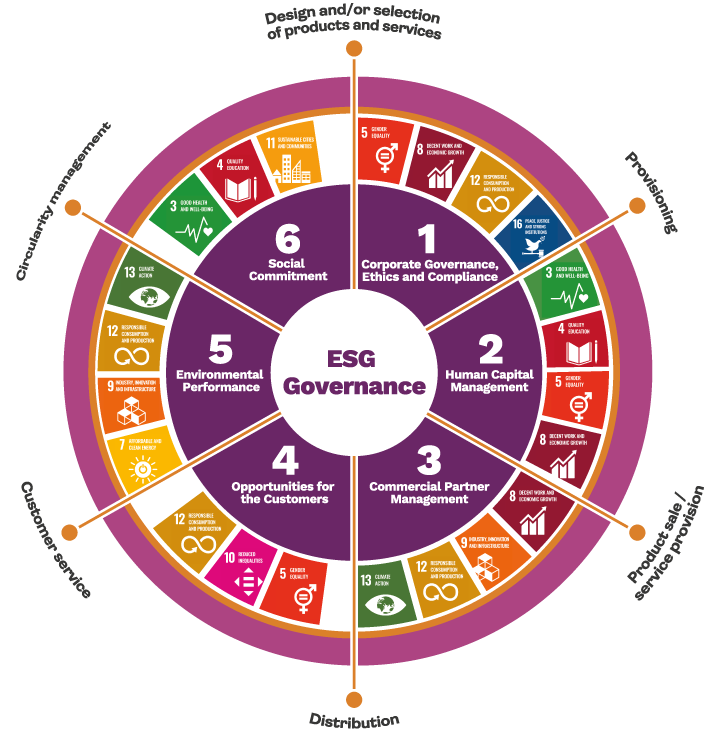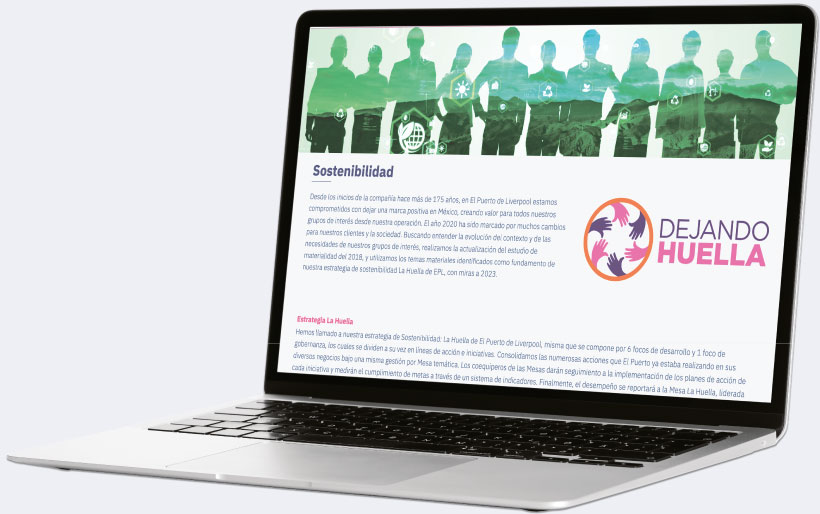The Footprint of
El Puerto de Liverpool
‘The Footprint of El Puerto de Liverpool’s’ model drives and integrates environmental, social, and corporate governance initiatives, aligned with our short, medium, and long-term objectives. Through this sustainability strategy, we establish our priorities based on the materiality study conducted in 2020 and updated in 2024, identifying key strategic actions for the company.

Our sustainability commitments are focused on 2030 and 2040 targets, which are monitored and reported annually to international organizations, ensuring accountability, transparency and continuous enhancement. Through this commitment, we reinforce our corporate integrity and participate in global indices such as the Dow Jones Sustainability, S&P/BMV Total ESG, Task Force on Climate-Related Financial Disclosures (TCFD), IC500, SASB, and GRI, reaffirming our leadership in sustainability.
For the purposes of this document, we will only highlight the significant achievements of 2024. To learn about the projects that are part of The Footprint of El Puerto de Liverpool’s operation, you can find their progress on the sustainability website:

To positively impact our businesses and stakeholders, we align our efforts with the UN’s 2030 Agenda to develop strategic initiatives.
Double materiality
To further align with international standards and strengthen our sustainability strategy, we updated our materiality analysis. This enhanced approach allows us to evaluate material topics from two complementary perspectives:
Financial materiality, assesses the risks and opportunities associated with environmental, social, and governance (ESG) factors that can influence the company’s performance and long-term value creation.
Impact materiality, analyzes the effect of our operations, products, and services on the environment and our stakeholders.
This analysis has led to a list of key material topics, covering environmental, social, and governance dimensions. Through in-depth interviews with internal representatives and stakeholders, we have identified and prioritized the most relevant themes for the company and its stakeholders.

Topics
- Business ethics and transparency
- Human capital
- Cybersecurity
- Corporate governance
- Climate change
- Supply chain and responsible sourcing
- Operational eco-efficiency
- Risk management
- Customer relations
- Community engagement
- Biodiversity
This rigorous approach strengthens business resilience and ensures that our sustainability strategy proactively adapts to current and future challenges.